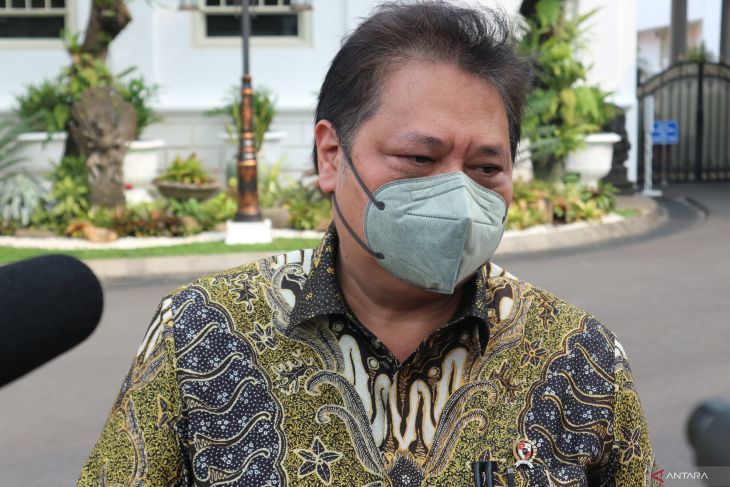JAKARTA – The Indonesian government is preparing a special strategy for 2023 to deal with the food and energy crises, Coordinating Minister for Economic Affairs, Airlangga Hartarto, said at the State Palace on Monday.
“President Joko Widodo (Jokowi) had asked us to prepare a strategy to anticipate food and energy shortage at the global level. We must avoid it,” he remarked.
On Monday, the minister attended two limited meetings with the President on the management of palm oil derivative products and the evaluation of community activity restrictions (PPKM).
“First, Indonesia’s economic fundamentals are relatively strong. Our inflation is at 4.2 percent, with growth percentage at 5 percent; meanwhile, the inflation rate in Europe on average is at eight percent, and the United States at nine percent. Indonesia’s third-party funds are above 10 percent, with credit growth above nine percent as well. Our economy is relatively moving,” he informed.
Hartarto said that the consumer confidence index in Indonesia has reached 128, or is in the optimistic area (above 100). The consumer confidence index reflects the confidence of Indonesian consumers regarding current economic conditions and their expectations in the period to come.
“Our Purchasing Managers’ Index (PMI) is at 50.2 percent since crude palm oil (CPO) exports still have obstacles, but it has started to run again. For 26 (consecutive) months, our trade balance has been positive,” the minister noted.
He also informed that Indonesia’s food stocks, especially of rice, are safe until the end of 2022 and insufficient supply.
According to the minister, the rupiah’s recent weakening against the US dollar is not a problem at this time.
“There are several currency strengthening in various countries, there is also a weakening in other parts. It is not a problem,” he emphasized.
On Monday morning, the rupiah strengthened 47 points, or 0.31 percent, to Rp14,950 per US$1 compared to the close of the previous trade, when it stood at Rp14,991 per US$1.
According to Statistics Indonesia (BPS), Indonesia’s trade balance in June 2022 recorded a large surplus of US$5.09 billion, with exports, pegged at US$26.09 billion and imports valued at US$21 billion. The overall trade surplus was driven by exports, which increased more rapidly than imports. In January–June 2022, Indonesia’s trade balance experienced a surplus of US$24.89 billion.
Earlier, Hartarto had said that the economic situation in Indonesia is relatively good, with a smaller recession potential compared to 3 percent in other countries.
Minister of Finance, Sri Mulyani Indrawati, also said that based on the International Monetary Fund’s (IMF’s) assessment, Indonesia’s economy is in a good condition, in view of several aspects such as economic performance; growth; payments balance, with the country experiencing a trade surplus for 26 consecutive months; and inflation, which is below five percent.

